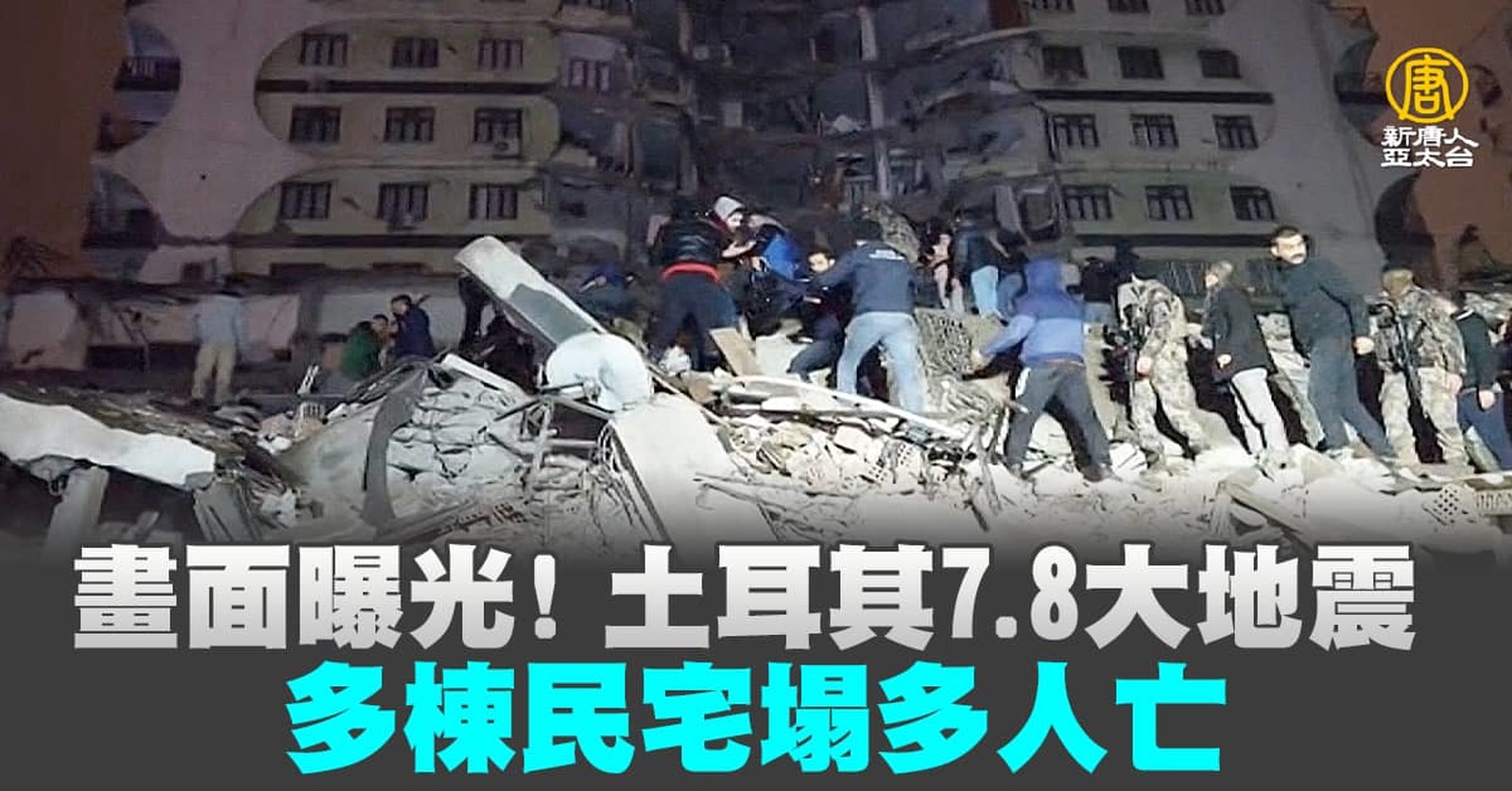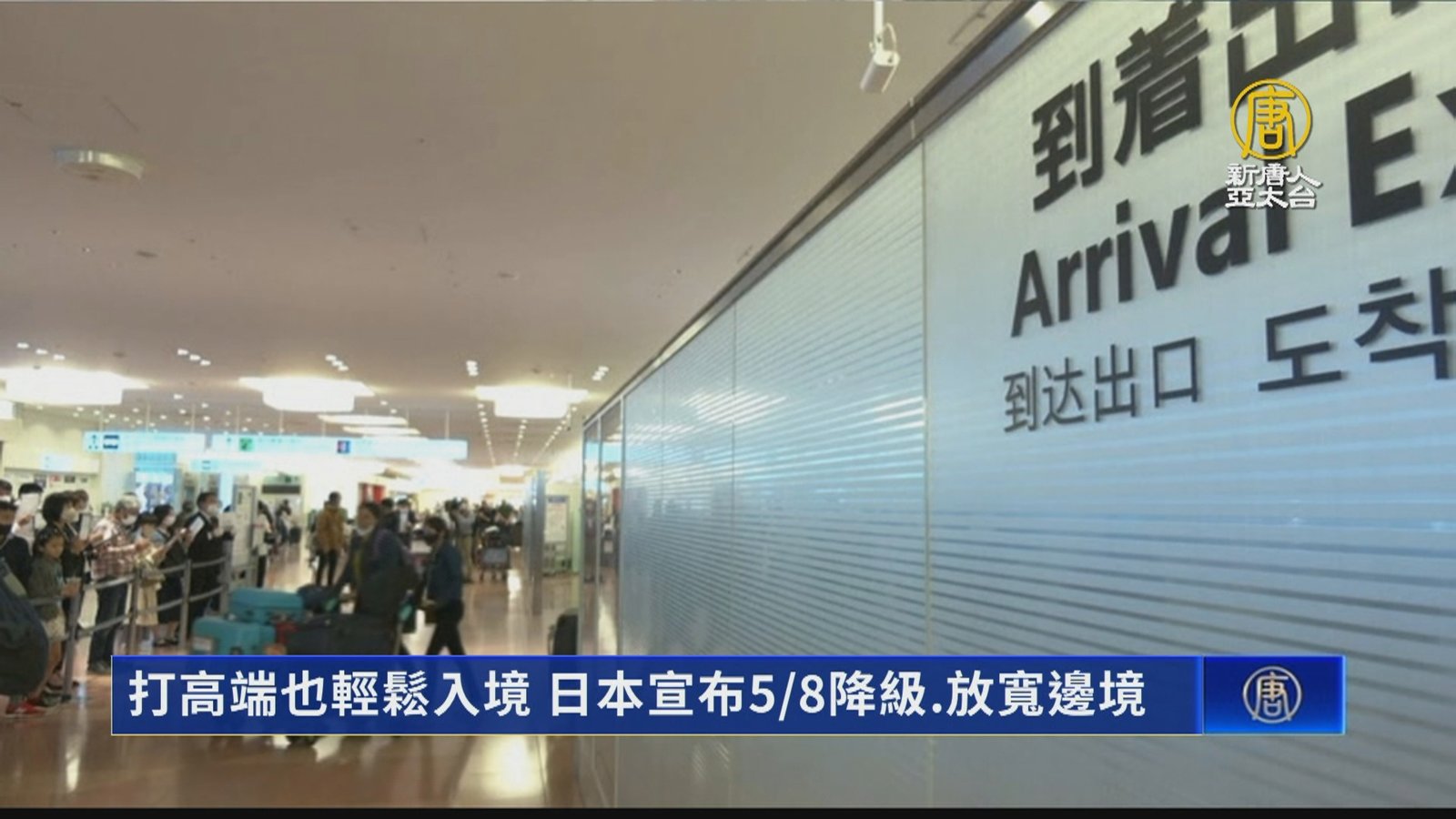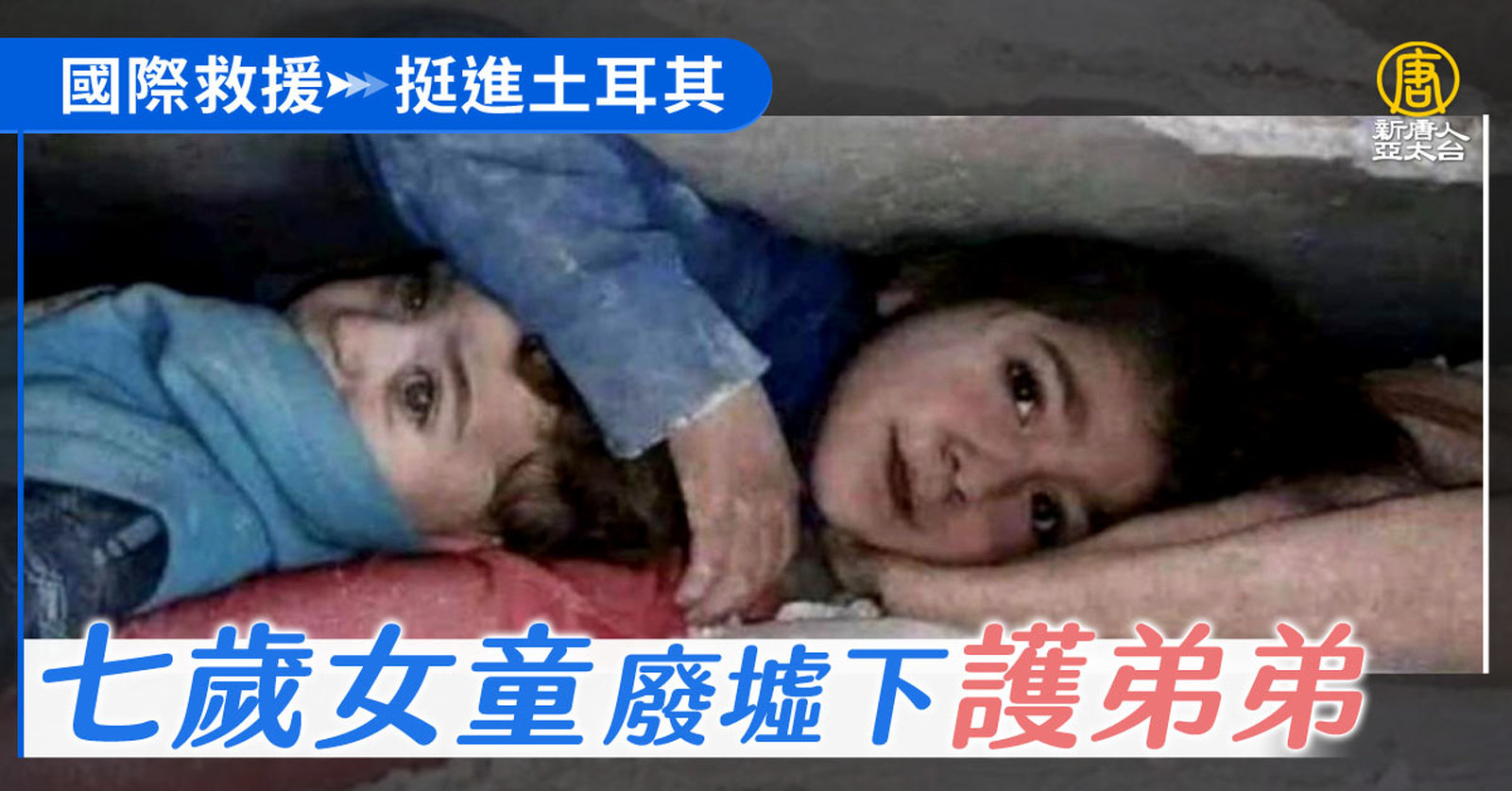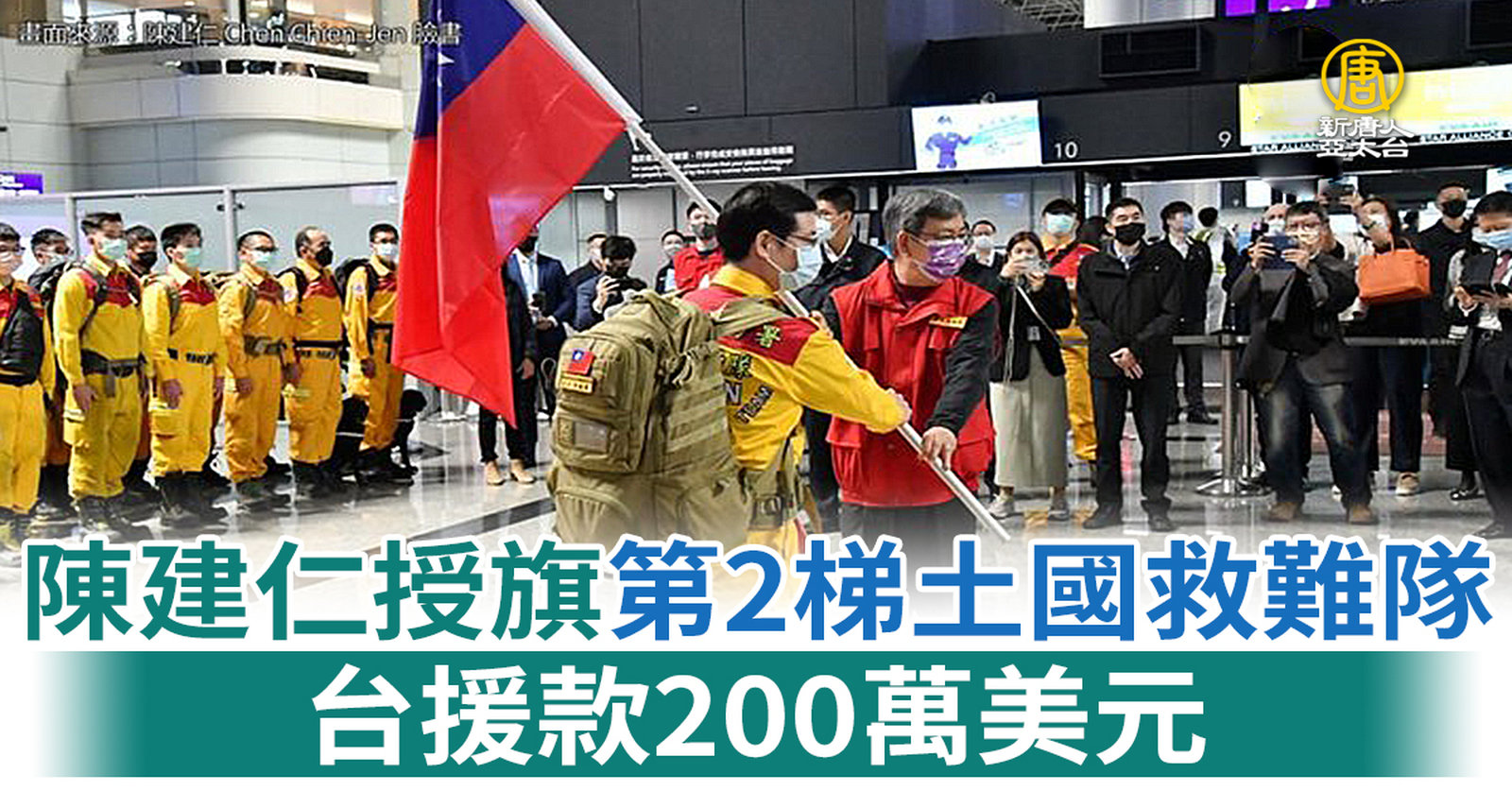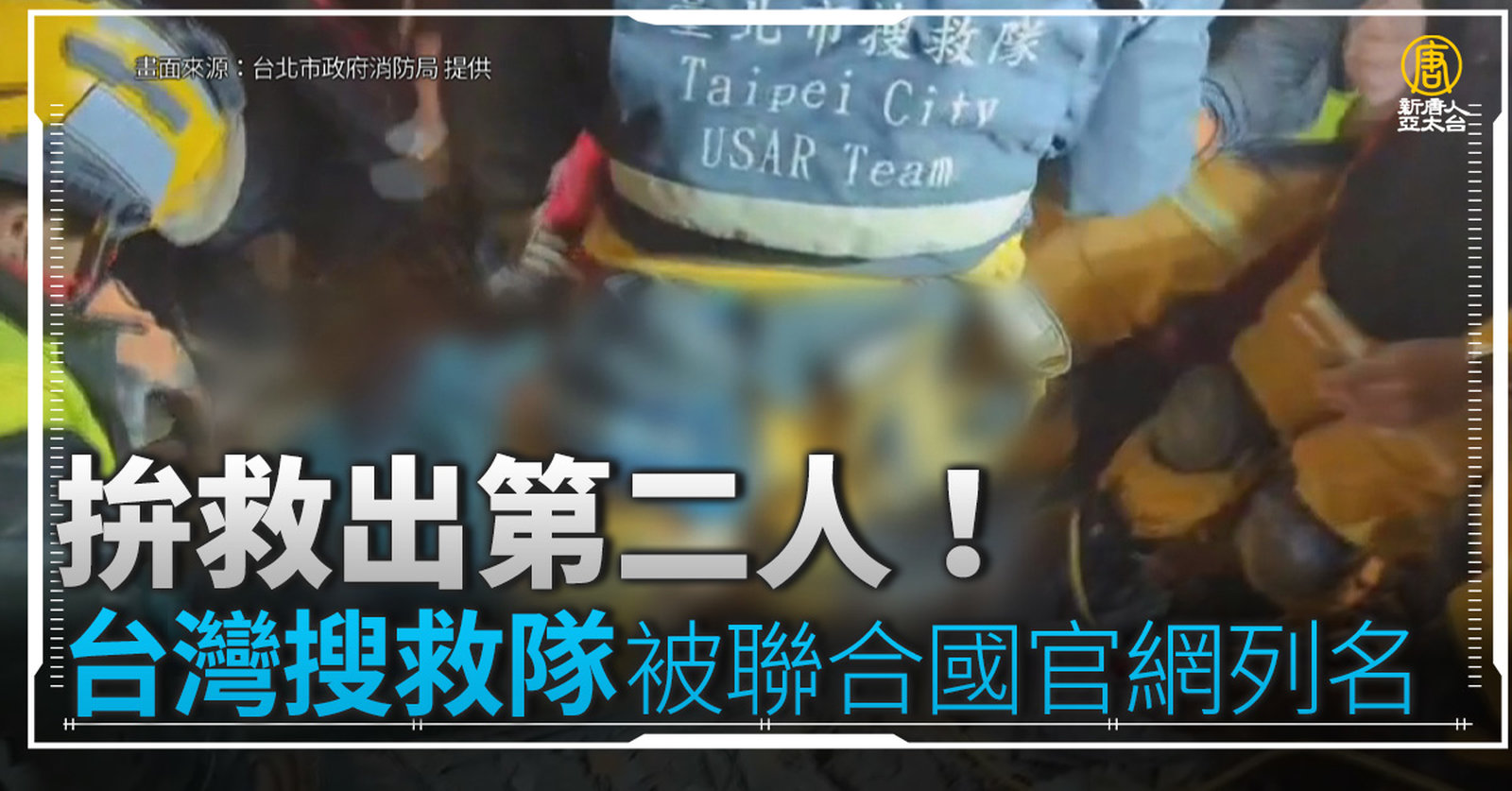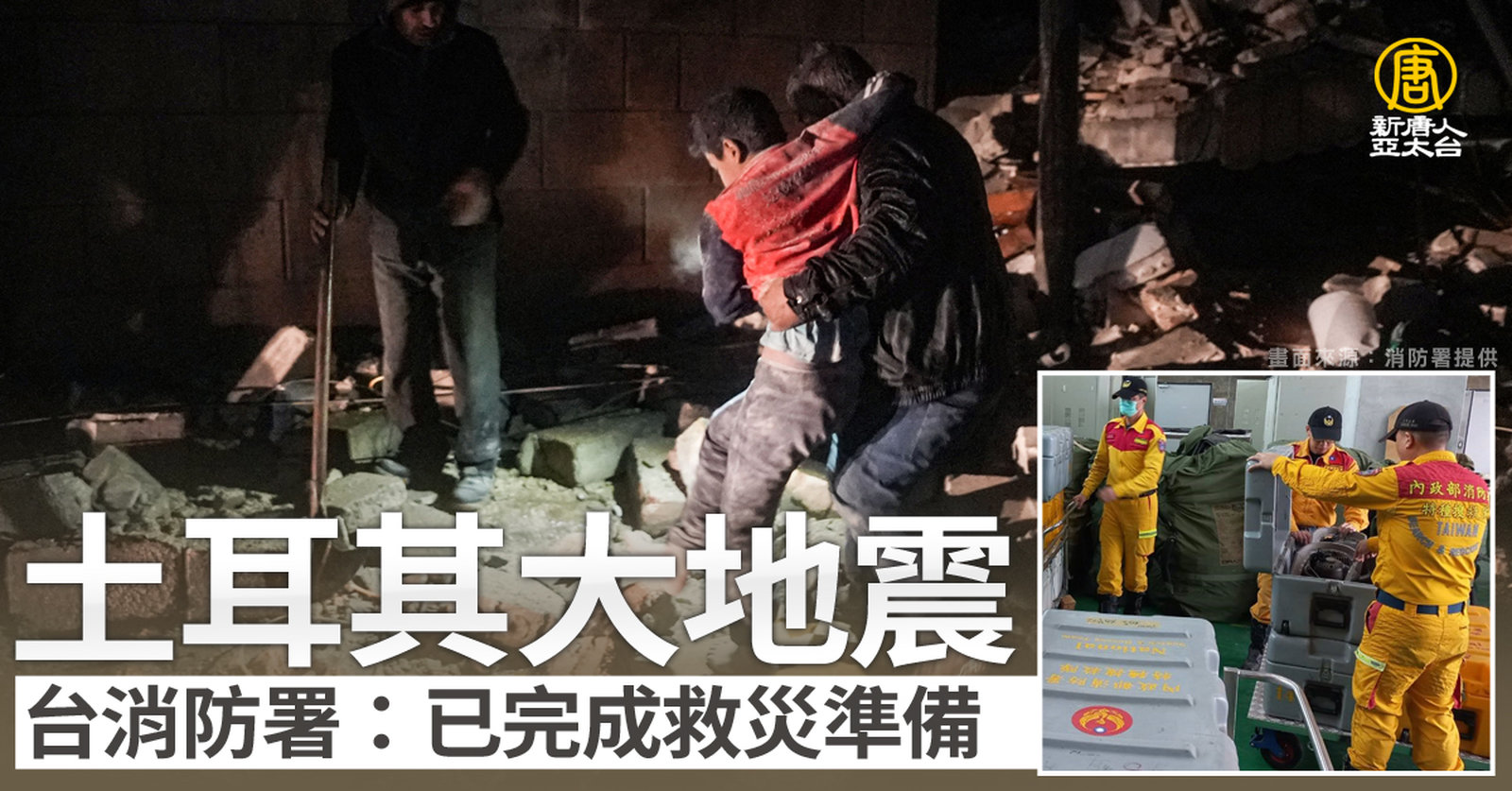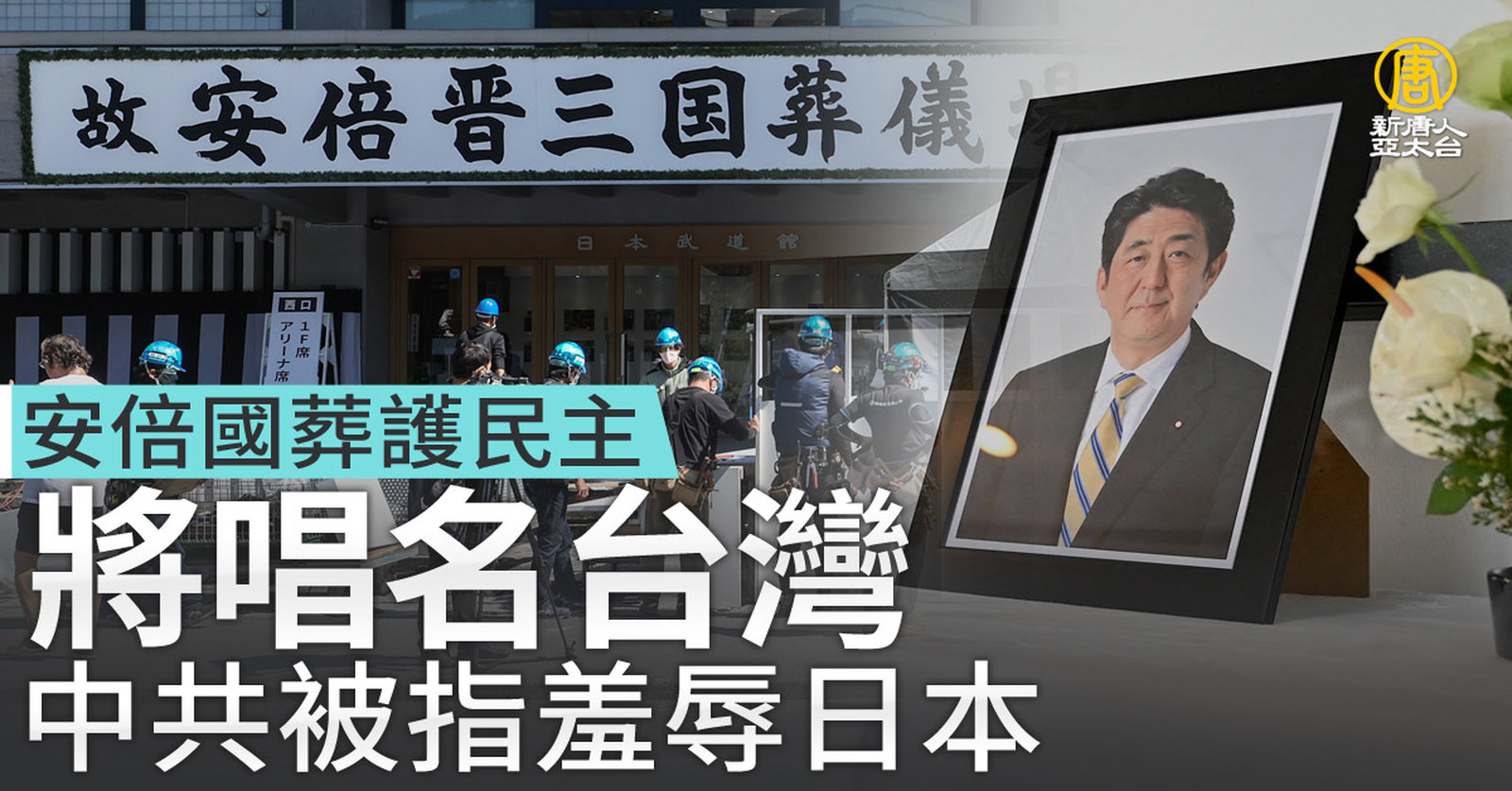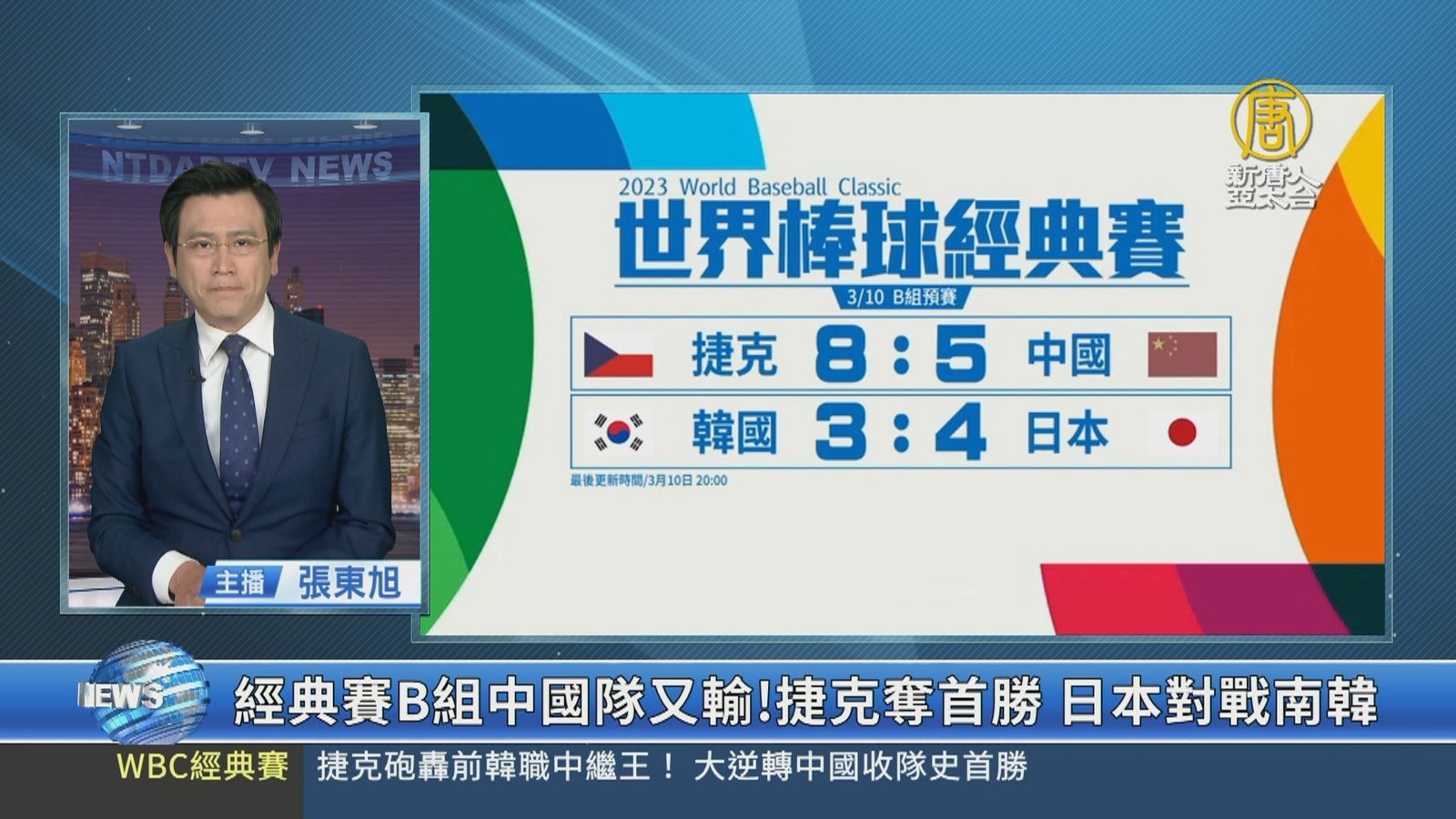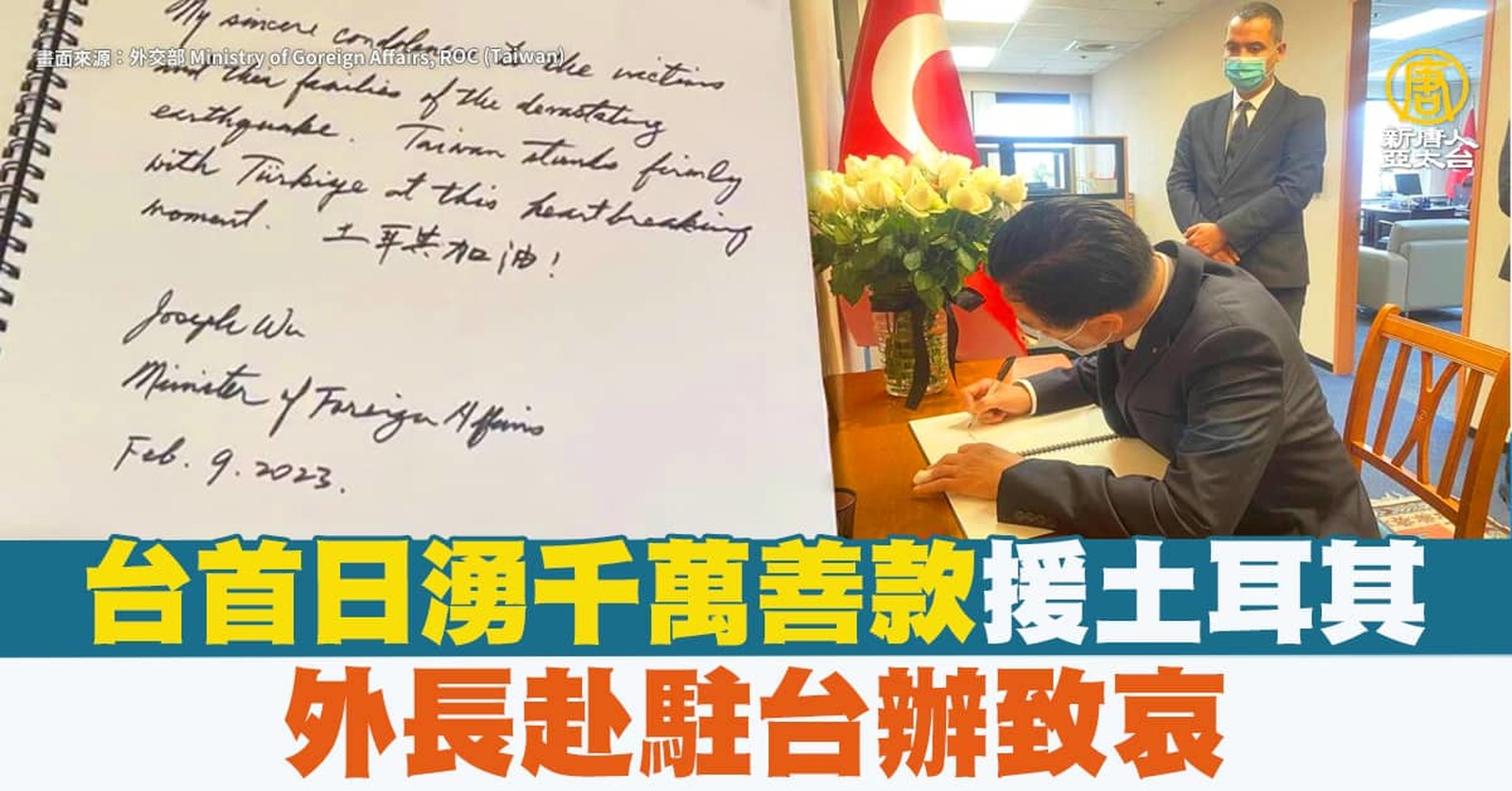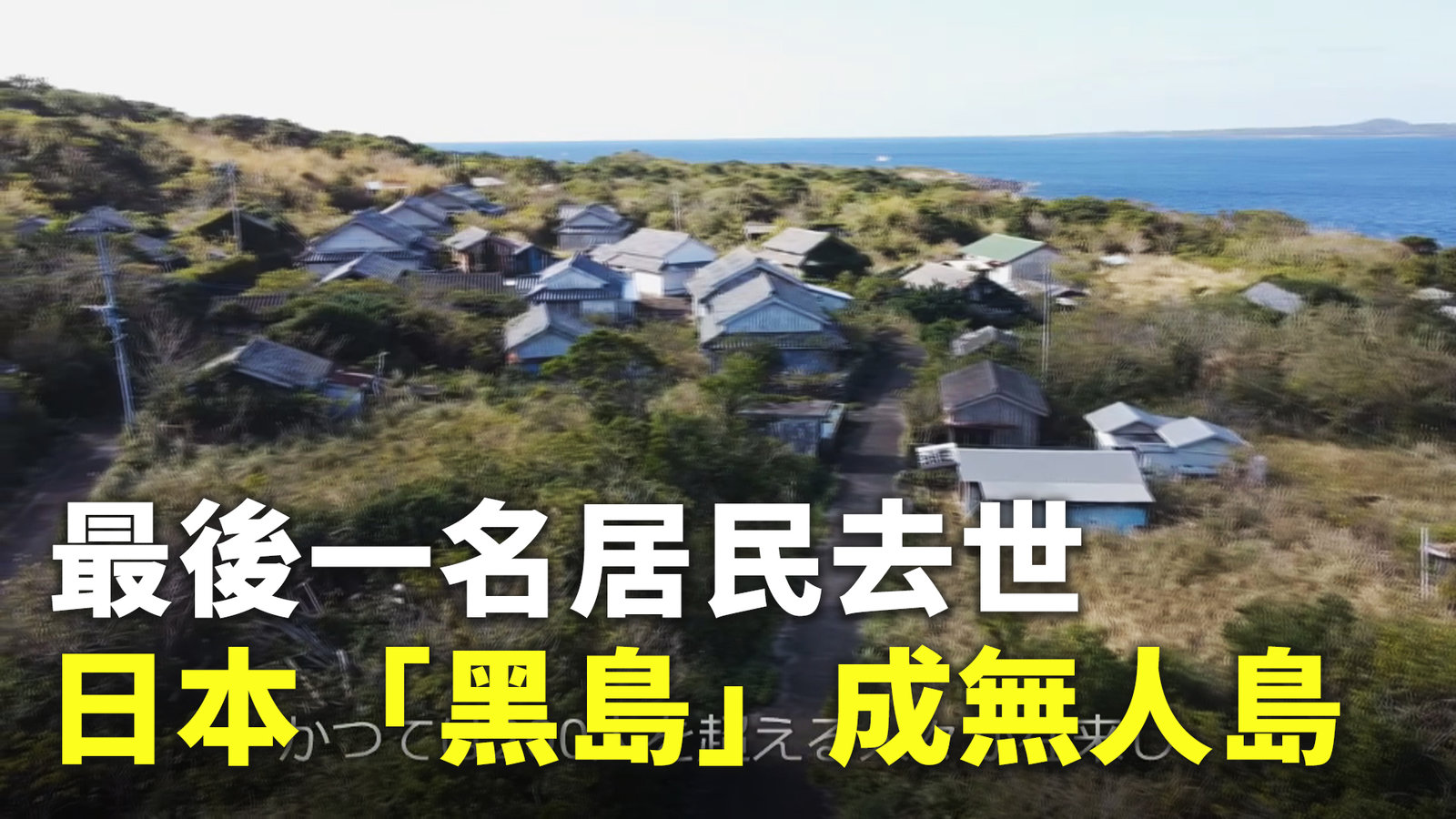视频:日本地震 引发海啸
【新唐人2011年3月12日訊】当地时间11号下午2点46分左右,日本东北部仙台附近海域发生8.9级强烈地震。这是日本140年来最强烈的的一次地震。这次地震还引发了至少5波大海啸,其中最严重的一次高达10米。
电视画面显示海浪摧毁农舍、农田、公路和车辆等。(畫面是電視台英語報道)
Even for a country accustomed to earthquakes, like Japan, this one was frighteningly different. At least 59 people have been killed in the quake measuring 8.9 that struck northeast Japan on Friday (March 11th) and the ensuing tsunami, broadcaster NHK reported.
Kyodo news agency said, a ship carrying 100 people was swept away by the tsunami and one train was unaccounted for in a coastal area.
The quake shook commercial and office buildings in major cities like Tokyo and Sendai.
There were reports of widespread and major damage, such as the tsunami sweeping into Sendai airport, fires and explosions in some plants, and a possibility of a nuclear reactor leak in Fukushima.
Japan has told the U.N. nuclear watchdog that a heightened state of alert has been declared at the Fukushima Daiichi nuclear power plant after Friday's major earthquake, the Vienna-based agency said.
The International Atomic Energy Agency also said it had been told that the plant had been shut down and that no release of radiation had been detected. Japanese media reported separately that a leak was possible at the plant as water levels fell. Nuclear fuel requires continued cooling even after a plant is shut down.
The quake surpasses the Great Kanto quake of Sept. 1, 1923, which had a magnitude of 7.9 and killed more than 140,000 people in the Tokyo area. Seismologists had said another such quake could strike at any time.
Earthquakes are common in Japan, one of the world's most seismically active areas. The country accounts for about 20 percent of the world's earthquakes of magnitude 6 or greater and on average, an earthquake occurs every 5 minutes.
A 1995 quake in Kobe caused 100 billion US dollars in damage and was the most expensive natural disaster in history.
相關新聞
-

日本福島外海規模5.1地震 楢葉町震度5弱
2022-10-21 16:00:56日本時間今天下午3時19分(台灣時間下午2時19分)許,福島縣外海觀測到規模5.1地震,福島縣楢葉町觀測到震度5弱。這起地震沒有引起海嘯的危險。
-

台日防災交流 嘉義消防局訪東京都廳危機管理部
2023-03-08 11:54:54為加強台日防災交流以強化雙方危機應變效能,嘉義縣消防局3月6日至10日於日本「橫濱市政府危機管理部」等單位參訪,希望能藉由與日本經驗、技術的交流,更強化嘉義縣救災與預防宣導的效能。
-

畫面曝光!土耳其7.8大地震 多棟民宅塌多人亡
2023-02-06 16:55:07新聞開始先來關心,今年全球最大地震,土耳其南部在當地時間清晨,發生規模7.8大地震,奧斯曼尼耶省至少5人遇難、34棟建築被摧毀。土耳其全國至少有38人死亡,死亡人數預計還會攀升。土耳其總統艾爾段表示,土耳其災害與應急管理局和其他單位,目前處於警戒狀態。土耳其廣播電視公司報導,地震強烈震動卡拉曼馬拉斯省,而其他東南部省份,以及鄰國黎巴嫩、敘利亞都有感。土耳其災害與應急管理局說明,7.4地震發生在凌晨4點17分,並且後續還發生了規模6.4和 6.5兩次餘震。
-

英男用13年時間 將後院建成精緻日式花園
2023-02-25 15:18:55英國一位兩個孩子的父親花費了13年時間,將自家多年閒置荒廢的後院改造成一座優雅精緻的日式花園。
-

大熊貓被扎堆送回國 真正元凶是中共
2023-03-04 20:27:38目前包括美國在內,已經有4個國家相繼宣布,要退還租賃的大熊貓,中共獨有的「熊貓外交」不斷受挫,到底怎麼回事呢?帶您了解。
-

打高端也輕鬆入境 日本宣布5月8日降級.放寬邊境
2023-04-03 20:40:07再來看到,台灣人遊玩首選國家之一日本,宣布從5月8號起,調降COVID-19疫情等級,入境日本條件再放寬。
-

林志玲婚前與為人母後改變?AKIRA:變更漂亮
2022-10-19 11:35:41日本男團放浪兄弟成員AKIRA和妻子林志玲最近一家三口幸福返台,日前受訪時被問及妻子為人母與婚前的最大改變,AKIRA特別用中文稱讚「變更漂亮」。
-

國際救援挺進土耳其!七歲女童廢墟下護弟弟
2023-02-08 21:15:52火線新聞,持續帶您關心,土耳其7.8強震的最新情況,目前距離地震發生已經超過50個小時,土耳其和鄰國敘利亞的遇難人數,已經攀升到1萬1千多人。全球至少65個國家和地區派出搜救人員協助,也有好消息傳出,一家六口被壓在廢墟長達40小時,陸續救出,另外救難隊也在敘利亞,救出一對姊弟,當時七歲的姐姐,在廢墟下,用手保護弟弟,受困17小時後,平安獲救。
-

陳建仁授旗第2梯土國救難隊 台援款200萬美元
2023-02-08 10:28:31台灣首批搜救隊6日晚間搭機前往土耳其救災,第二批搜救人員也在昨晚出發,除了90名來自消防署、台北市、台中市、屏東縣的搜救隊員,還有2隻搜救犬及6.4公噸儀器設備,包括最先進的生命偵測器,行政院長陳建仁特別到場授旗,他說,相信隊員一定能達成任務,讓世界看到Taiwan is helping。另外,中華民國外交部也宣布捐贈土耳其政府的賑災援款,提高至200萬美元,以進一步幫助土耳其政府安置災民。外交部也公布土耳其賑災捐款專戶。
-

星宇航空與7-ELEVEN再合作 推4款日式美食
2022-12-27 18:06:08星宇航空今天宣布,再度與7-ELEVEN合作,明天起推出4款日式美食,消費者還有機會抽中日本不限航點來回機票。
-

奇技!球速160KM 武術爺爺精準拔刀對半劈
2022-10-15 15:03:31在棒球比賽中,打者要擊中160公里的快速球,並不是一件容易的事。日本一名65歲的武術爺爺鈴木勇悅,卻能快速拔出武士刀,將時速160公里的棒球,精準地劈成兩半。
-

拚救出第二人!台灣搜救隊被聯合國官網列名
2023-02-09 13:51:38新聞開始先來關心,土耳其7.8強震,奪走超過萬人性命,台灣超過百位搜救員,到土耳其協助救援,今天傳來振奮人心的消息,救援團隊發現受困者,展開搶救作業,成功將一名女子救出。消防署今天還表示,同日深夜11點多再發現1名受困者的敲擊聲,經確認位置後,使用碎石機破壞救援中。
-

世台聯合基金會訪問團拜會各部會 國際公益計畫提升台灣能見度
2022-10-08 15:10:56世台聯合基金會由陳秋貴董事長領銜帶領該會董事、親善大使等訪問團成員19人,於10月3日至5日拜訪賴清德副總統、立法院游錫堃院長、外交部吳釗燮部長、衛福部李麗芬政務次長、以及僑委會徐佳青副委員長,該基金會所推行的多項國際公益計畫均獲得各部會的肯定。
-

土耳其大地震 台消防署:已完成救災準備
2023-02-06 13:12:43土耳其7.8強震,大地震發生後兩小時,台灣消防署臉書上傳貼文,表示已經完成救災準備。消防署寫下,第一時間掌握土耳其受災情況,特種搜救隊已經同步進行了人道救援的任務整備,以及盤點相關救災量能,展現台灣的救災軟實力。網友也在貼文下紛紛留言表示,注意安全、平安回來。
-

安倍國葬護民主 將唱名台灣 中共被指羞辱日本
2022-09-26 13:27:34日本前首相安倍晉三,國葬禮明天27日舉行。首相岸田文雄先前強調展現「守護民主決心」。這次總計49位前任與現任國家領袖出席,日方在唱名各國代表獻花時,將以「台灣」稱呼台灣代表團;中共派出低層級的政協副主席出席,被解讀在羞辱日本。
-

經典賽B組中國隊又輸!捷克奪首勝 日本對戰南韓
2023-03-10 21:06:14世界棒球經典賽B組預賽,昨天(9日)輸給日本的中國隊今天中午出戰捷克,中國隊在7局下連拿4分,上演大逆轉戲碼,但捷克隊到了9局上,轟出3分砲再度逆轉,最終捷克隊以8比5擊敗中國,拿下隊史經典賽首勝。而晚間6點開打的「日韓大戰」,日本派出大聯盟投手達比修有先發,至於南韓則是派出34歲王牌左投金廣鉉,目前比賽進行到第○局,韓國對日本比數來到○:○。
-

南韓WBC痛宰中國 5局22:2提前結束比賽
2023-03-13 21:13:44體壇焦點來看到,世界棒球經典賽WBC在東京的B組預賽,晉級隊伍大勢底定。將由4戰全勝的日本;以及拿下3勝場,僅吞一敗場的澳洲,進入八強。另外,今晚南韓對上中國隊,南韓以22:2大幅領先中國,在第五局提前結束比賽。
-

聯日抗俄 烏克蘭國會認北方領土屬日本
2022-10-08 21:32:05烏克蘭國會7日通過決議,認定原先日本與俄羅斯的主權爭議地「北方領土」,為日本領土,烏克蘭總統澤倫斯基也已簽署總統令,並表示俄羅斯無權擁有該領土,烏克蘭尊重日本主權完整,喊話其它國家應該跟近類似行動。
-

台首日湧千萬善款援土耳其 外長赴駐台辦致哀
2023-02-09 16:50:47土耳其強震,造成土耳其與敘利亞兩國重大傷亡,目前兩國合計至少有1萬5千多人喪生,為了加速救災工作,土耳其政府宣布南部10省進入緊急狀態,為期3個月。中華民國外交部長吳釗燮,今天(9日)上午到土耳其駐台貿易辦事處表達哀悼和慰問,土耳其駐台代表貝定可再次感謝中華民國政府第一時間派遣搜救隊馳援的義舉,並對台灣提供200萬美元援款,以及台灣民眾與企業組織踴躍捐輸的善行,表達由衷感謝。行政院昨天傍晚公布捐款帳戶,不到24小時,已湧入7百29筆善款,總計新台幣1千零33萬元。
-

最後一名居民去世 日本「黑島」成無人島
2023-01-05 21:18:00日本長崎縣五島市富江町的黑島,由於人口外移,島上只剩下1名女性,而這名唯一的島民在去年7月因病過世,黑島也正式成為無人島。










